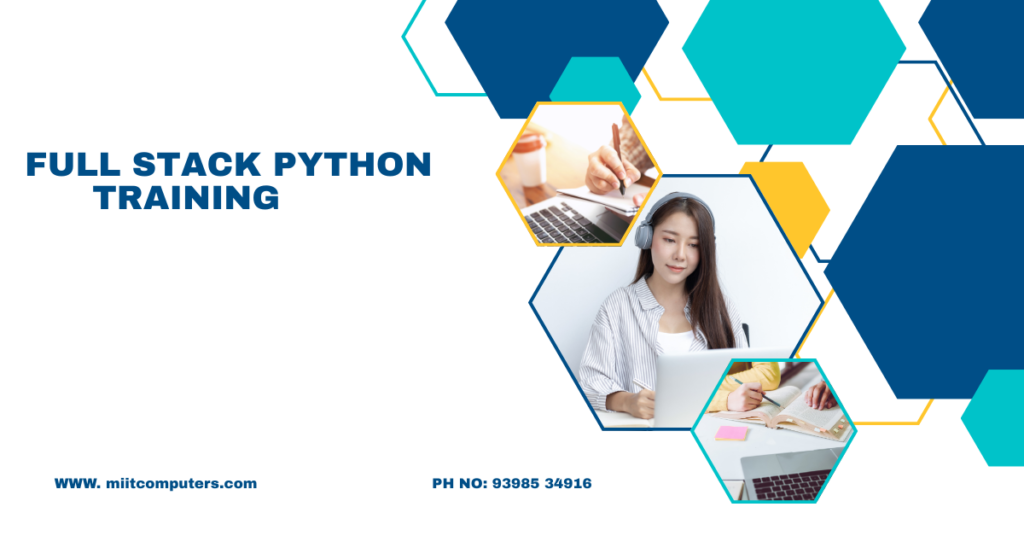PYTHON
A Python training program typically aims to equip individuals with the skills to write, understand, and maintain Python code. Here’s a general overview of what such a program might entail:
Core Concepts:
- Introduction to Python: Understanding what Python is, its history, key features (like readability, versatility, and large community), and its applications in various fields (web development, data science, machine learning, automation, etc.).
- Setting up the Environment: Installing Python and necessary tools (like IDEs or text editors) on your system.
- Basic Syntax and Data Types: Learning the fundamental building blocks of Python, including variables, keywords, operators, and core data types (integers, floats, strings, booleans, lists, tuples, dictionaries, sets).
- Control Flow: Mastering how to control the execution of code using conditional statements (
if,elif,else) and loops (for,while). - Functions: Defining and using functions to create reusable blocks of code, understanding arguments, return values, and scope.
- Data Structures: In-depth exploration of Python’s built-in data structures and how to effectively use them for organizing and manipulating data. This includes indexing, slicing, and various operations and methods associated with each structure.
- Modules and Packages: Learning how to import and use pre-written code from Python’s standard library and external packages to extend functionality. Understanding how to organize code into modules and packages.
- File Handling: Working with files to read data from and write data to them.
Intermediate Concepts:
- Object-Oriented Programming (OOP): Understanding the principles of OOP, including classes, objects, inheritance, polymorphism, and encapsulation, and how to implement them in Python.
- Error Handling: Learning how to anticipate and handle errors (exceptions) in Python code to prevent program crashes and ensure robustness.
- Working with Databases: Interacting with relational databases from Python, including connecting, querying, and manipulating data using SQL.
- Web Development Basics (Optional): Introduction to web frameworks like Flask or Django for building web applications.
- Data Science and Machine Learning Libraries (Optional): An overview of popular libraries like NumPy, Pandas, Matplotlib, and Scikit-learn for data analysis, manipulation, visualization, and machine learning tasks.
- Automation and Scripting (Optional): Using Python for automating repetitive tasks and writing system scripts.
Upon completing a Python training program, individuals should typically be able to:
- Write basic to intermediate-level Python code.
- Understand and debug existing Python code.
- Apply Python concepts to solve programming problems.
- Utilize Python’s built-in libraries and external packages.
- Develop simple applications or scripts in Python.
- Have a foundation for further learning in specific Python-related domains like web development, data science, or machine learning.
The specific content and depth of a Python training program can vary depending on the target audience (beginners vs. experienced programmers), the duration of the training, and the specific goals (e.g., general-purpose Python vs. Python for data science).


Python Course - Frequently Asked Questions
The course typically lasts 1 to 3 months, depending on the mode of learning and the level of expertise covered.
No prior programming knowledge is required. The course is designed for beginners as well as those looking to enhance their skills.
Yes, the course includes real-world projects like building automation scripts, web applications, and data analysis dashboards.
You’ll use tools like Jupyter Notebook, PyCharm, and Visual Studio Code for coding, along with libraries such as NumPy, Pandas, and Matplotlib.
You can contact Naarayana Technologies through our website or visit the nearest branch to register.
Join MIIT Computer Educationtoday and step into the exciting world of Python programming!
